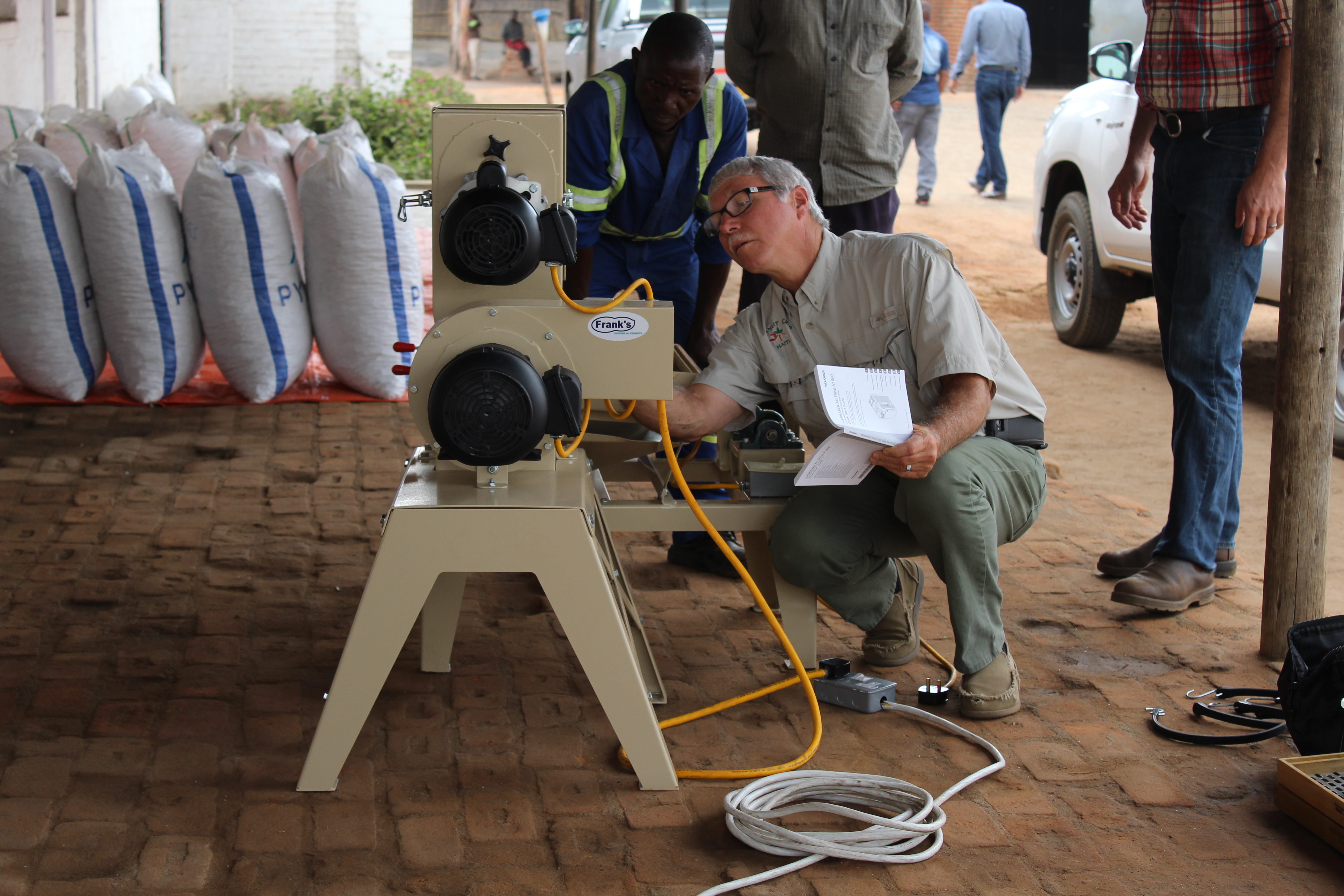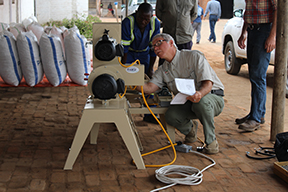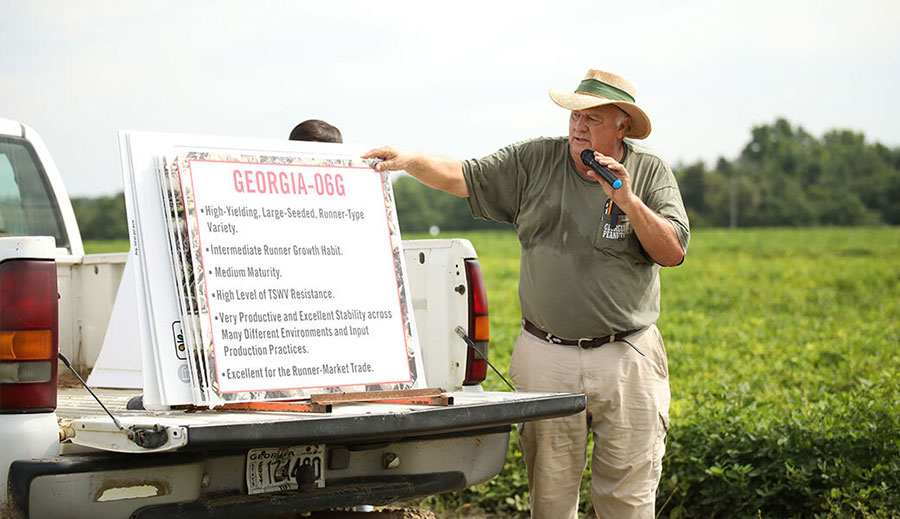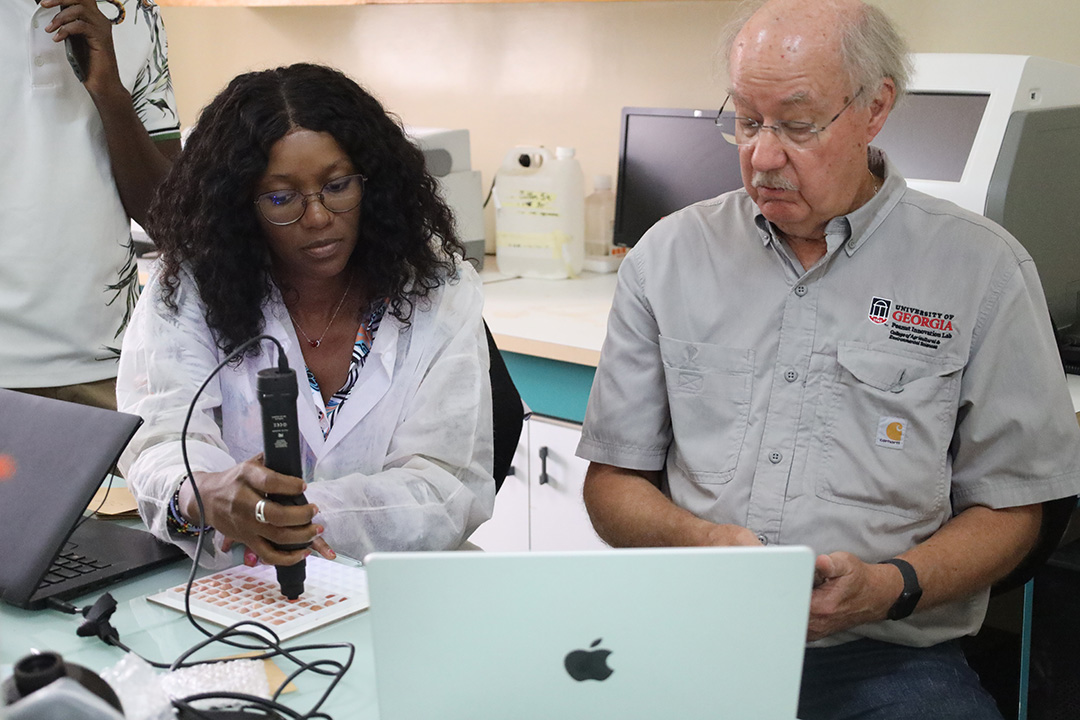The peanut industry is growing in Malawi, giving cash-strapped farmers a sustainable option in their crop rotation and allowing them to move away from dependence on tobacco. Two of the large tobacco exporting companies plan to buy 5,000 metric tons of shelled peanuts from Malawian farmers this year for regional trade, signaling investment in a diversified portfolio and a nascent growth in the formal peanut market, growth fostered by a partnership between the Peanut Innovation Lab and a USAID-funded program to help Malawian farmers diversify.
Peanuts, or groundnuts, as they are called in Malawi, are the mostly widely grown legume in the country and an important part of the local diet, but they have had limited value as a cash crop in the formal market because of inconsistent quality. Nuts in the informal market are sold shelled, and in mixed sizes or with high levels of aflatoxin contamination. A more formal market would require a system that allows nuts to be traded in the shell, shows consistent quality, and better segregates nuts with fungus contamination.
That’s where the Peanut Innovation Lab and Georgia man Frank Nolin stepped in.
The lab is working with the USAID-funded Malawi Agriculture Diversification Activity (AgDiv) to get farmers high quality seeds of improved varieties, appropriate technology packages and production information to grow a healthy crop, but the program is also now focusing on how to maintain the quality of the crop and deliver it to consumers.
A major challenge African agriculture is aggregating the harvest from many smallholder farmers with limited inputs and ability to follow best practices for quality. With fewer standards for trade and no way to measure quality, farmers often are paid by volume with little incentive to follow best practices for quality.
Peanuts mostly are traded in an informal market where they are sold shelled, which leaves them more susceptible to breakage and insect and aflatoxin infestation. Most buyers prefer to buy shelled nuts because they can see the quality of what they are buying; since shelling and sorting are done by hand or with low-cost equipment, shellers often rewet pods to make them softer, exacerbating aflatoxin.
Allowing peanuts to be traded in-shell in a formal market means establishing a reliable way to evaluate quality at the farmer level to reward them for quality and segregate out the highest risk peanuts.
The prototype equipment to provide this evaluation comes from Frank Nolin, a retired agricultural equipment manufacturer who spent his career building processing and handling equipment primarily for the US peanut industry. By making it possible for buyers shell a sample and determine a grade based on shell-out, maturing and visual quality, Nolin’s equipment allows buyers to separate nuts by grade and reward farmers based on quality, as well as separate groundnuts for sale in different markets.
The first step of this process is to develop a groundnut buying point grading system. AgDiv and the Peanut Innovation Lab are creating a pilot buying model based on US industry guidelines and best practices, using equipment designed for the scale of the African market.
With funding from AgDiv, Nolin designed several pieces of equipment for the groundnut breeder at the Malawi Department of Agriculture Research Services (DARS) in Lilongwe to improve operations there. With those prototypes in use, Nolin met with AgDiv’s private sector partners, Pyxus Malawi Agriculture and Limbe Leaf Tobacco Company (LLTC) who are investing in the groundnut sector as an opportunity to diversify away from tobacco.
Working together, the group came up with the idea for a kit – a “Peanut Buying Point in a Box” – so that buyers can shell a sample and sort nuts by grade and pay for quality. The Peanut Buying Point in a Box is based on the processes followed by the US peanut industry, and includes equipment to shell, clean, and grade a groundnut sample and check it for moisture and aflatoxin. The kit will allow buyers to know what they are buying and to segregate for aflatoxin risk before mixing the lots from different farmers and trying to rely on sorting technologies to deliver peanuts that meet standards.








